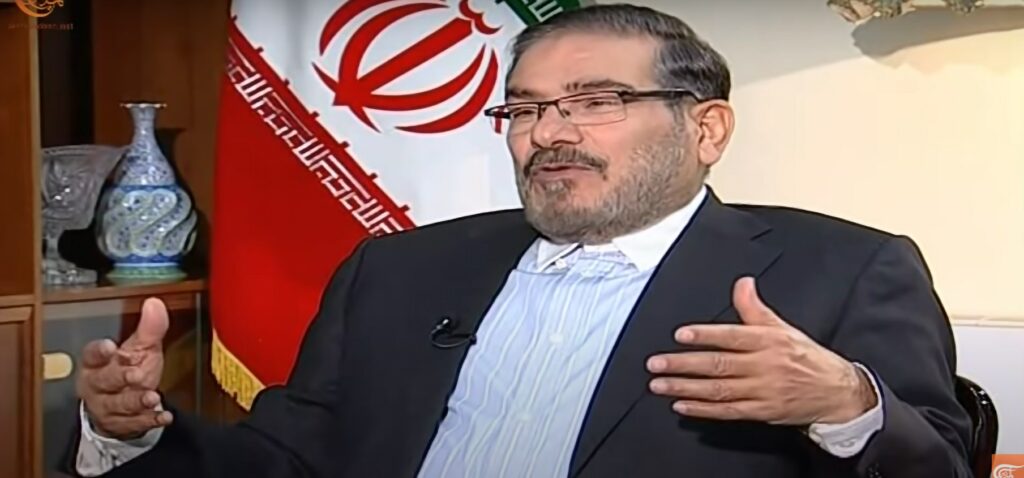While Iran faces the challenges of the war in Ukraine, the talks on the new nuclear agreement which are stuck in a deep crisis and sanctions and an economic crisis, Ali Shamkhani, one of the most important and powerful political and security figures in the Iranian elite, was forced to submit his resignation.
There are several explanations for his removal from his position as Secretary General of Iran’s Supreme Security Council after ten years in the important position that shapes Iran’s security and foreign policy, one of which is that it happened because of his close ties with a senior British spy named Ali Riza Akbari who was Shamkhani’s deputy in the Ministry of Defense and later an adviser in the Supreme Security Council.
In 2019, as soon as serious security suspicions arose against Ali Riza Akbari, he was called back to Iran from Britain, arrested and executed last January.
The removal of Ali Shamkhani came as a surprise, in March he managed the negotiations between Iran and Saudi Arabia on the restoration of diplomatic relations between them through the mediation of China, he also acted as a diplomatic envoy to the Gulf countries for the purpose of strengthening commercial and diplomatic relations.
Supreme Leader Ali Khamenei issued an order at the beginning of the week in which he dismissed Ali Shamkhani from his position and thanked him for his service, replacing him with Admiral Ali Akbar Ahmadian, the former deputy commander of the Revolutionary Guards’ naval unit.
No one in the Iranian elite has immunity because of mistakes he has made, especially in the field of intelligence related to Israel and the West, last June Hossein Taib, the head of intelligence of the Revolutionary Guards, was dismissed due to the wave of assassinations of senior Iranian officials attributed to the Israeli Mossad.
Iranian officials claim that Ali Shamkhani was involved in corruption and that his family made millions of dollars through a trucking company that helped Iran evade the sanctions imposed on it by the West.
He was also accused of being responsible for the failure of the attempts to revive the nuclear agreement from 2015 and of a soft attitude towards the Hijab protests in the country.
The Iranian street accused him of harshly suppressing the demonstrations in which hundreds of demonstrators were killed by the Iranian security forces, while the Iranian government claimed that he acted with a soft hand towards the demonstrators.
The conservative faction in the presidency and parliament saw him as someone close to Iran’s previous governments who could not be trusted and it put heavy pressure on Supreme Leader Ali Khamenei to remove him from his position.
He was appointed after his removal to the position of a member of the Council for Safeguarding the Regime’s Interests which advises the Supreme Leader Khamenei, sources in Iran claim that his removal was made after consultation between the Supreme Leader Khamenei and President Raisi.
Will Iran’s foreign and security policy change following the replacement of Ali Shamkhani?
Iran aligns itself with the new line of President Ibrahim Raisi, Ali Shamkhani should have been deposed a few months ago, knowledgeable sources in the Iranian elite claim that nothing will change in Iran’s foreign and security policy following his removal and there will be no change in the agreement reached between Iran and Saudi Arabia.
Ali Shamkhani cast a shadow with his knowledge on Iranian Foreign Minister Hossein Amir Abdallahian, and he was the target of criticism by the government media, his appointment as a member of the Council for Safeguarding the Interest of the Regime shows that the last word has not yet been said on the matter and it is not the end of his political career, he sees himself a real candidate in the presidential elections in Iran.
The Supreme National Security Council in Iran has an important role in the decision-making process on security and foreign policy issues of the Islamic Republic and is headed by the President.
Its members are senior in the field of security and foreign policy, all its decisions require the approval of Supreme Leader Khamenei before they are carried out.
The Secretary General of the Council is in fact an emissary of the Supreme Leader and now Ali Akbar Ahmadian will fulfill the position.
The 62-year-old Ahmadian has a military background as did Ali Shamkhani, the secretaries-general who preceded them in the council such as Saeed Jalili, Ali Larijani and Hassan Rouhani had only civilian experience.
Ahmadian was until recently the head of the Strategic Center of the Revolutionary Guards, a position he held for the past 15 years.
In 2007, the US Treasury imposed sanctions on Ahmadian and described him as a central figure in the Revolutionary Guards, the European Union also imposed sanctions on him in the same year.
Ahmadian assumes an important and central position in the security system in Iran at a sensitive time, but Ali Shamkhani is still on the political wheel and has not said the last word.
Senior Iranian officials claim that Ali Shamkhani is a personality with very high abilities in the field of security and foreign policy and he will be integrated in the future into senior positions at the Iranian top.




